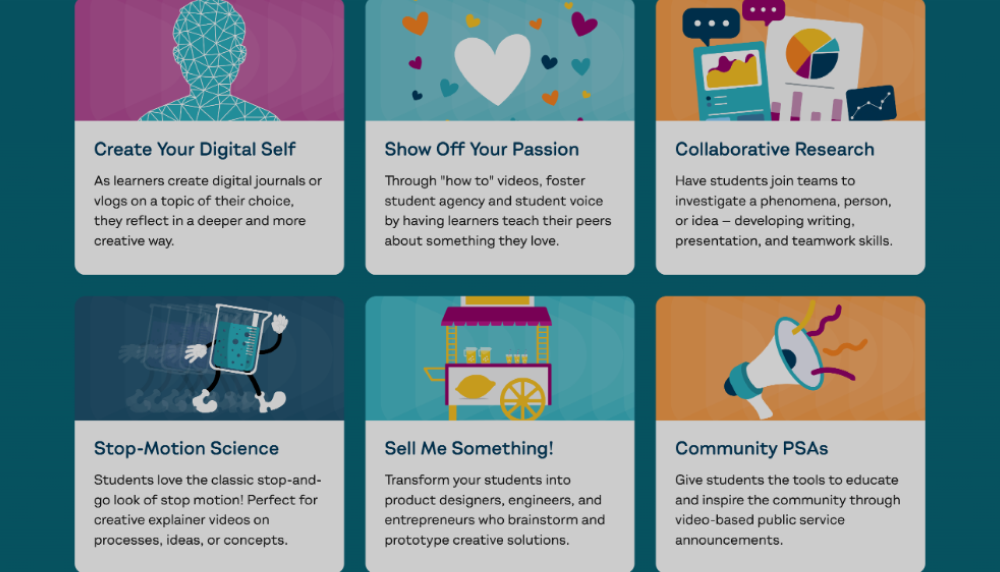- Home
- Education
- Video projects
- Stop-Motion Science
Stop-Motion Science
![]()
Grades: 6-8, 9-12 | Subjects: Reading, Language Arts, Science
Students create a stop-motion video to explain complex processes or concepts in an accessible way. Start a free 30-day WeVideo trial to use this assignment with your students!

Assignment details
![Overview]() Overview
Overview
Stop motion works by capturing a sequence of movement, one frame at a time. Students use this creative filmmaking approach to create a stop-motion video explaining a science concept to their classmates.
![Objectives]() Objectives
Objectives
In this activity, students create video explanations of complicated processes, ideas, or concepts, making advanced science topics accessible.
![Tips & tricks]() Tips & tricks
Tips & tricks
-
For help getting started, use the included video template.
-
Use stop motion to help nonnative speakers make sense of academic vocabulary.
-
Stop-motion videos can be made with a laptop or a phone camera and a tripod.
![ISTE standards]() ISTE standards
ISTE standards
-
Creative Communicator 1.6.c
-
Global Collaborator 1.7.c


/Stock%20(with%20filter)/AdobeStock_436767512.webp)
/Education/education-overview-resource-2.webp)